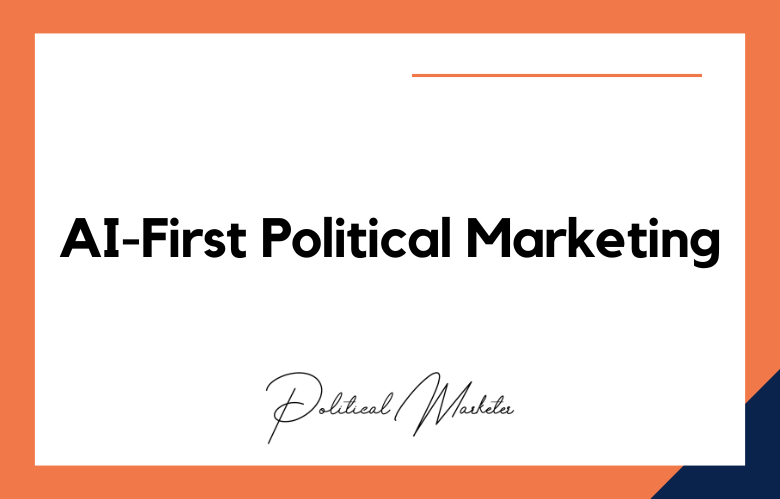As we approach another election cycle, we must recognize technology and data’s impact on the electoral process. Political campaigns are now more sophisticated than ever, and digital advertising has become essential to their strategies.
One of the most controversial tactics in digital advertising is ad-based segmentation. This technique allows campaigns to divide potential voters into specific groups based on their behavior, demographics, and political affiliations and target them with personalized messages.
While this approach has proven highly effective in capturing votes, it has also raised critical ethical considerations.
Ad-based segmentation in political advertising is familiar but has gained significant traction in recent years.
By collecting data on voters’ behavior on social media and other online platforms, campaigns can create custom audiences based on age, location, education, and interests.
They can then tailor their messages to resonate with each group’s values and beliefs, increasing the likelihood of engagement and support.
AI Marketing Hallucination
AI Marketing Hallucination is a concept that uses artificial intelligence technology to create marketing strategies designed to captivate and influence the targeted consumer base.
This innovative approach to marketing leverages AI technology to analyze consumer behavior, preferences, and interactions, thereby allowing companies to develop more personalized and effective marketing campaigns.
With the increasing complexity of the marketing landscape, AI Marketing Hallucination has become essential for businesses seeking to maintain a competitive edge.
By leveraging the power of AI, marketers can gain valuable insights that enable them to understand their target audience better, identify new opportunities, and ultimately develop marketing strategies that lead to increased customer engagement and revenue growth.
Dog-Whistle Political Strategy
Dog-whistle political strategy is a term used to describe a political tactic that employs coded language to appeal to a specific group of people while remaining relatively ambiguous to the general population.
This strategy involves using phrases, words, and images that have a specific meaning to a particular group. It relies on the idea that some people will recognize the message being conveyed while others will not, creating a kind of political subtext that speaks directly to those in the know.
This approach is commonly used in political campaigns to target specific groups of voters without turning off other potential supporters.
It is often used to appeal to the emotions and values of certain groups, such as the working class or religious conservatives while avoiding language that might alienate other groups.
In some cases, the messages conveyed through this strategy can be racially divisive or even discriminatory, playing on fears and prejudices to appeal to a specific group of voters.
Demagoguery Political Strategy
Demagoguery is a political strategy that uses emotional manipulation, propaganda, and populist rhetoric to appeal to the popular opinion of the masses and achieve political gains. It is a political leadership style that relies on persuasion, charisma, and sensationalism to win public support and inspire followers.
Historically, demagogues have exploited their followers’ fears, grievances, and aspirations to gain and maintain power.
They often use strong language, falsehoods, and scapegoating to create a sense of urgency and insecurity among the public, exploiting them to gain supporters.
By using tactics such as scapegoating minorities, making extravagant promises, and painting simplistic solutions to complex problems, demagogues often appeal to the emotions of their followers and create a cult-like following, which can be dangerous to democracy.
Patronage Political Strategy
Patronage political strategy is where elected officials distribute government jobs, contracts, and resources to loyal supporters and colleagues. Such favors are exchanged for political support, campaign contributions, and party loyalty.
This type of political strategy is highly controversial and is often associated with corruption and nepotism.
Patronage’s political strategy creates a network of loyal supporters dependent on the government for their livelihoods.
This ultimately undermines the integrity of the democratic process as it perpetuates a cycle of cronyism, favoritism, and corruption. These unethical practices also lead to inefficient allocation of resources and can be detrimental to the country’s overall progress.
Rally ’round the flag Political Strategy
Rally around the flag is a political strategy leaders use to bolster patriotic sentiment and unite individuals under a common cause or goal.
This strategy dates back to ancient Roman times when military commanders hoisted a standard or flag to signal their troops to unite and fight for their country. In modern times, the relevance of this political strategy has remained the same, and leaders continue to use it to their advantage.
The rallying cry for citizens to “rally round the flag” is often heard during crisis or war, where the country’s strength and unity are tested.
In such situations, political leaders take advantage of the heightened patriotic sentiment to gain support for their policies, even if they would not have garnered support in more peaceful times.
By framing policies regarding national security and patriotism, leaders can gain the public’s trust, and the public, in turn, is more likely to rally behind the government’s initiatives.
Conclusion
In conclusion, ad-based segmentation has become integral to modern political campaigns, but its use raises critical ethical considerations.
While this approach allows campaigns to reach specific groups with personalized messages, it can also exploit voters’ personal information, perpetuate biases, and spread misinformation.
As technology continues to evolve, it is essential that political campaigns approach ad-based segmentation with transparency and responsibility. By doing so, they can ensure that this tactic remains a powerful tool for engaging voters without sacrificing their privacy, dignity, or well-being.
Political ad-based segmentation is a powerful and complex tool that offers benefits and risks for political campaigns and society.
While segmentation can lead to greater personalization and effectiveness in campaigning, there are concerns about polarization, data privacy, and manipulation.
Ultimately, it is up to campaigns, policymakers, and individuals to consider the impact of ad-based segmentation on our democracy and work towards ensuring fair and ethical political advertising practices.










